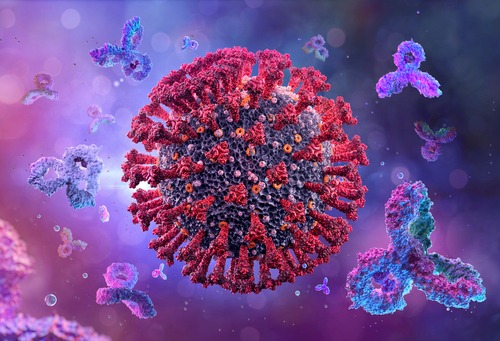
In a move that prompted backlash from Florida in particular, the United States Food and Drug Administration (FDA) this week announced revised and restricted authorizations of bamlanivimab/etesevimab and REGEN-COV for COVID-19 treatment.
While the two had been available before this, Dr. Patrizia Cavazzoni, director of the FDA’s Center for Drug Evaluation and Research, announced that data showed the two treatments to be highly unlikely to be active against the omicron variant, an evolution of COVID-19 that now dominates U.S. circulation. CDC data estimated omicron to account for more than 99 percent of U.S. cases as of Jan. 15. Going forward, the use of the two monoclonal antibody treatments is authorized only on patients likely to have been infected with or exposed to variants susceptible to them.
“In the future, if patients in certain geographic regions are likely to be infected or exposed to a variant that is susceptible to these treatments, then use of these treatments may be authorized in these regions,” Cavazzoni said in a statement. “Monoclonal antibodies are laboratory-made proteins that mimic the immune system’s ability to fight off harmful pathogens such as viruses, like SARS-CoV-2. And like other infectious organisms, SARS-CoV-2 can mutate over time, resulting in certain treatments not working against certain variants such as omicron. This is the case with these two treatments for which we’re making changes today.”
According to Cavazzoni, restricting the use of the antibodies means avoiding exposure of patients to various and potentially serious side effects in pursuit of a treatment not expected to benefit them. The decision followed recommendation by the National Institutes of Health COVID-19 Treatment Guidelines Panel, which based their decision on markedly reduced activity against the omicron variant from the two antibodies, and because real-time testing to identify rare, non-omicron variants is not regularly available.
As a result of this decision, the federal government will not dispatch more of these monoclonal therapies to states or territories. In response, the Florida Department of Health shut down all state-run monoclonal antibody treatment sites until further notice. Gov. Ron DeSantis – a heavy promoter of the treatments – criticized the decision and other state officials accused the federal administration of a lack of transparency.
However, the FDA noted that several other therapies, including paxlovid, sotrovimab, veklury (remdesivir), and molnupiravir, are still expected to work against the omicron variant and thus remain authorized or approved for the treatment of mild-to-moderate cases of COVID-19.
“While it’s critical that we have ways to treat those who contract COVID-19, the authorized treatments are not a substitute for vaccination in individuals for whom COVID-19 vaccination and a booster dose are recommended,” Cavazzoni said. “Data has clearly demonstrated that the available, safe, and effective vaccines can lower your risk of developing COVID-19 and experiencing the potential associated serious disease progression, including hospitalization and death.”
In a separate statement, the Department of Health and Human Services (HHS) Office of the Assistant Secretary for Preparedness and Response confirmed those still effective antibodies would still be allocated at no cost for patients. It specifically noted sotrovimab, evusheld, paxlovid, and molnupiravir among those still being distributed.
“When we learned of Omicron, we immediately reviewed our existing monoclonals and available data on whether they would work against the new variant and learned that two of them – bamlanivimab plus etesevimab and casirivimab plus imdevimab (REGEN-COV) – are not effective against Omicron,” the ASPR said. “Subsequently, both Lilly and Regeneron have said their products are not likely to be effective against Omicron, and several independent studies have shown this as well.”




